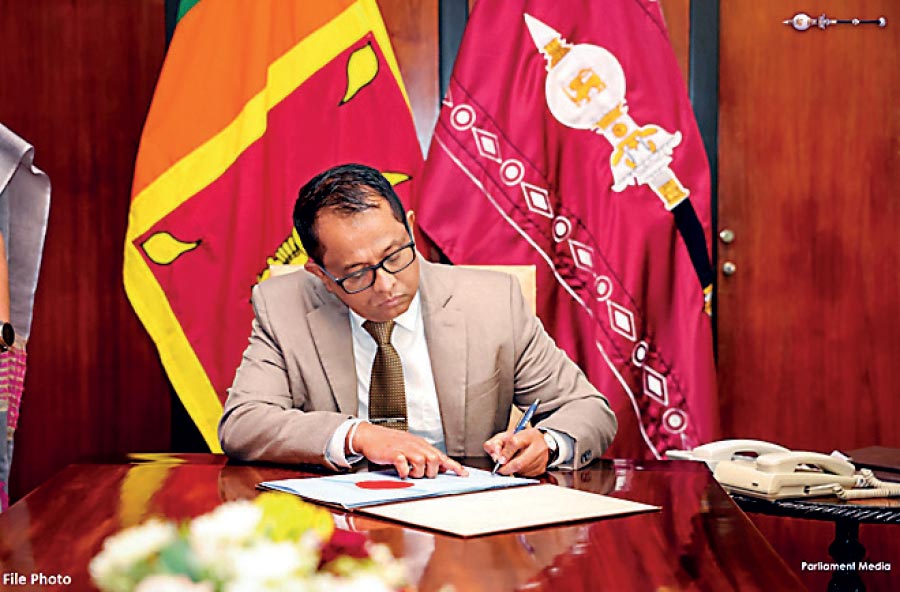Monday Feb 16, 2026
Monday Feb 16, 2026
Thursday, 21 August 2025 05:28 - - {{hitsCtrl.values.hits}}

Speaker of Parliament Dr. Jagath Wickramaratne certifies Sri Lanka Electricity (Amendment) Bill
Sri Lanka’s new electricity law took effect on Monday, aimed at ensuring a continuous and affordable supply of electricity while reducing greenhouse gas emissions and promoting renewable energy, the Parliament Secretariat
said.
Speaker of Parliament Dr. Jagath Wickramaratne certified the Sri Lanka Electricity (Amendment) Bill on 18 August, following its passage on 6 August.
The legislation, now the Sri Lanka Electricity (Amendment) Act, No. 14 of 2025, replaces the National Electricity Advisory Council with a National Electricity Policy as part of the country’s broader National Policy on Energy. It also renames the “Wholesale Electricity Market” as the “National Electricity Market.”
The law replaces a 2024 Act, which was part of a package of IMF-backed reforms designed to restructure the Ceylon Electricity Board (CEB). It enables unbundling of services, allows private sector participation across generation, transmission and distribution, and seeks to improve efficiency, transparency and accountability.
The amended bill had faced criticism in its draft stage from the private sector and the Public Utilities Commission of Sri Lanka. In June, the Supreme Court ruled that several provisions were unconstitutional. The court said some clauses required amendments, others needed a special majority in Parliament, and one clause demanded approval by referendum.
Among the rulings, Clause 8(2) was directed to be amended to make committee members liable under the Anti-Corruption Act, No. 9 of 2023. Clause 13(1) (c) was deemed a violation of Article 3 of the Constitution, requiring both a special majority and a referendum, unless amended as specified. Clause 13(1) (b), relating to the transfer of employees during the unbundling process, was found to be vague and arbitrary, violating constitutional protections on equality and employment rights. Clause 13(2) was also found to be inconsistent with constitutional provisions, but could stand if amended as outlined in the court’s determination.
Sri Lanka has pledged to the IMF to reform its state-owned enterprises, including the CEB, as part of broader economic restructuring.